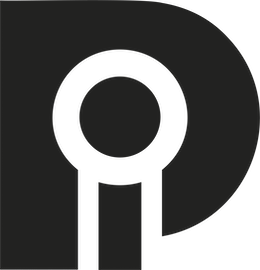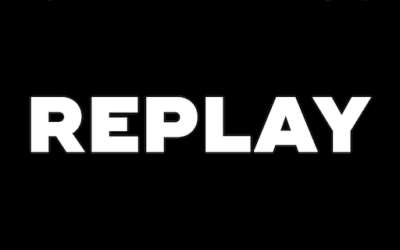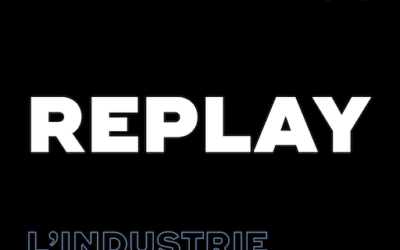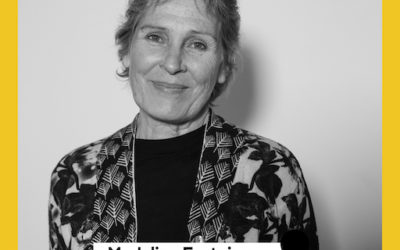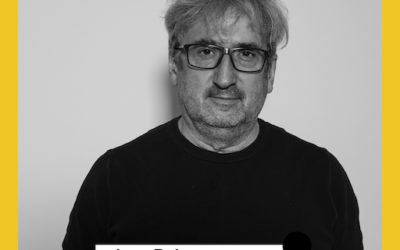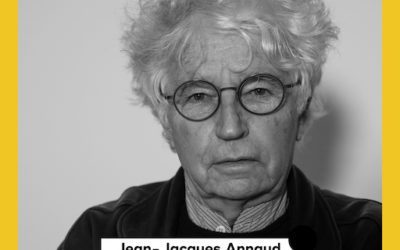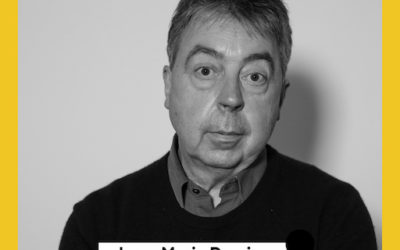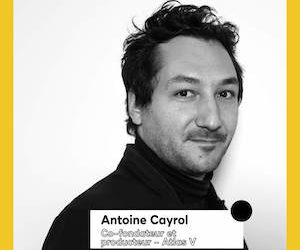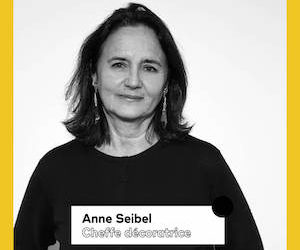Isabelle Manquillet, editor
On the occasion of L’industrie du rêve, Isabelle Manquillet told us about her job as an editor.
Could you define your job in a few words ?
That’s a good question ! My job is, first of all, to collect the rough rushes of a film shoot, accompanied by a script, and to engage in a dialogue on the last writing phase of a movie with the director and all the partners, collaborators, technicians, who will be involved in the post-production. This final writing is fundamental because a film when it comes out of shooting is not finished.
What seems most essential to me in this work is the collaboration I will have with the director within his world. What I will be able to bring him in terms of writing solutions, reinvention, rediscovery of his film. According to the strong or weak points of the rushes, the shooting conditions, what he wanted, what he didn’t get or what he got in addition. All this is part of the elements that we recover in the editing room and that we will flatten, discuss again for the final construction of the film, the history of the film.
You had worked on quite a few genre or fantasy films, such as School’s out, The Night Eats the World and Particles. Was it a conscious choice or was it because you wanted to work with these directors?
It so happens that I directed Clément Cogitore’s The Wakhan Front, which is a film that is a bit close to the genre but is not fully a genre film. And as Clément brought something quite new I find in cinema, the film was very, very noticed, so I got calls from directors who wanted to meet me for their films. And it turns out that these films had a genre part to them. But one day I was offered a full genre film, which I refused, because it’s not completely my universe.
Exactly, what are your criteria for accepting a project?
The meeting with the director, then the film. After that, to commit to a type of cinema that you don’t watch, with which you don’t have much affinity, which is my case with pure horror films, is complicated because you feel you don’t belong. But when you edit a film, you have to be 200% in it, close to the director, to his world, to understand it well.
You’ve also edited documentaries. What’s the real difference between editing a documentary and editing fiction ?
The difference is mainly at the level of writing and editing, because a documentary is really something you write when you edit it. Of course, there’s a project, a direction, a theme, interviews,… part of writing, even, contained in the rushes. But the big difference is that you arrive at the editing stage thinking “We’re going to write the film. Re-think the whole writing of the film”. Whereas in fiction, you start by adapting the script to be in line with the director’s intentions. Then we rewrite it according to what we have, what works, what doesn’t work. There is always a rewriting that is much more consistent in documentaries. And so it takes more time. It’s not uncommon for a documentary to take more than a year to edit. In general, there are many more rushes, it can be a documentary shot over several years, several months, seasons. We’re no longer in the same writing. A fiction film is very rationalized in terms of shooting.
Do you think that the profession of editor is more masculine than feminine or, on the contrary, that there is a good parity ?
At the beginning, it’s a women’s profession, which men took over, in a way. They became interested in it from the moment that in the history of cinema we introduced narration, therefore storytelling. Today, there is more or less parity between men and women, at least that’s what we notice when we do surveys within the Monteurs Associés. However, we notice that men are more able to ask for more in terms of salary. So in general they earn more. From the moment they are settled in the trade, they are more able, in terms of confidence, based on a different education that we find in many trades.
Autres articles
REPLAY PARIS IMAGES ONLINE 2022
Opening by Dominique Boutonnat, President of the CNCCase study “The Last Duel”...
REPLAY PARIS IMAGES L’INDUSTRIE DU RÊVE
Autres articles
Madeline Fontaine, directrice artistique costumes
Rencontre avec Madeline Fontaine costumière.Comment avez-vous abordé ce nouveau...
Jean Rabasse, chef décorateur « Notre-Dame brûle »
Rencontre avec Jean Rabasse chef décorateur.Les principaux défis sur le tournage...
Jean-Jacques Annaud, réalisateur « Notre-Dame brûle »
Rencontre avec le cinéaste Jean-Jacques Annaud.Pourquoi un film sur l’incendie...
Jean-Marie Dreujou, chef opérateur chez AFC
Rencontre avec Jean-Marie Dreujou, chef opérateur.Comment avez-vous abordé le...
Déborah Papiernik, SVP new business & strategic alliances chez Ubisoft
Rencontre avec Déborah Papiernik, d’Ubisoft qui est senior VP sur les...
Hervé Dupont, directeur des productions chez Fortiche Productions
Rencontre avec Hervé Dupont, directeur des productions chez Fortiche Production...
Antoine Cayrolco-fondateur et producteur chez Atlas V
Dans le cadre du Paris Images 2022, Antoine Cayrol, co-fondateur et producteur...
Anne Seibel, cheffe décoratrice
Dans le cadre du Paris Images 2022, Anne Seibel, cheffe décoratrice et...
